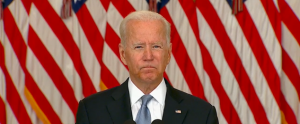
The New York Times: President Trump said on Monday that he would direct the Pentagon to establish a sixth branch of the armed forces dedicated to protecting American interests in outer space, an idea that has troubled lawmakers and even some members of his administration, who have cautioned that the action could create unnecessary bureaucratic responsibilities for a military already burdened by conflicts.
During a speech at a meeting of the National Space Council, Mr. Trump announced plans to protect American interests in space through monitoring commercial traffic and debris, initiatives he said would be “great not only in terms of jobs and everything else, it’s great for the psyche of our country.”
Minutes later, the president zeroed in on Gen. Joseph F. Dunford Jr., the chairman of the Joint Chiefs of Staff, and tasked him with the undertaking of creating another branch of the military.
“General Dunford, if you would carry that assignment out, I would be very greatly honored,” Mr. Trump said from the podium, after searching for him in the crowd.
“We got it,” the general replied.
With his statement, Mr. Trump waded into a policy debate about space that has spanned administrations, beginning in earnest during the Clinton era. Mr. Trump, who has previously teased his desire to create a space force, entered the fray as he was scheduled to sign a less ambitious proposal, one that would establish a framework for directing commercial traffic in space and monitoring debris.
Analysts were puzzling over the particulars.
“Does that verbal order translate into something more concrete?” said Todd Harrison, the director of the Aerospace Security Project and director of Defense Budget Analysis at the Center for Strategic and International Studies. “The most he can really ask them to do is start planning for it.”
With his interest in space, Mr. Trump appears to be taking a more protective stance than his modern predecessors, who over the years have wrestled with ways — and with rival governments, including Russia and China — to keep military conflicts in space at bay while still protecting American interests, including commercial operations and the current satellite system.
“At best this is simply the creation of an additional D.O.D. bureaucracy,” Daryl G. Kimball, the executive director of the Arms Control Association, said in an interview, referring to the Department of Defense. “At worst, it is the first step in an accelerated competition between the U.S., China and Russia in the space realm that is going to be more difficult to avert without direct talks about responsible rules of the road.”
The military and Congress have warned that a plan to establish another branch of the armed forces over space protection and space missions would require a long and detailed process, and that the current period of global conflict is not the time to weigh the armed forces down with bureaucratic measures.
“At a time when we are trying to integrate the department’s joint warfighting functions, I do not wish to add a separate service that would likely present a narrower and even parochial approach to space operations,” Defense Secretary Jim Mattis wrote in a letter last year to Representative Michael R. Turner, Republican of Ohio and the chairman of the House Tactical Air and Land Forces Subcommittee. Mr. Turner has opposed a legislative effort by the House Armed Services Committee to create a space division of the military.
After Mr. Trump’s announcement, the Pentagon released a statement from Dana W. White, the Defense Department’s chief spokeswoman. “We understand the president’s guidance,” she said. “Our policy board will begin working on this issue, which has implications for intelligence operations for the Air Force, Army, Marines and Navy. Working with Congress, this will be a deliberate process with a great deal of input from multiple stakeholders.”
Last year, Congress punted on a decision to establish a space corps through the National Defense Authorization Act, and asked for an independent study on the issue. That report is due in August. A more expansive report, which is required to include an extensive road map to a space force, is due by the end of the year.
Either way, legislative hurdles would lie ahead.
The creation of a sixth branch of the military to join the Army, Navy, Air Force, Marine Corps and Coast Guard would require congressional authorization and approval. Senator Bill Nelson, Democrat of Florida, who is on the Senate Commerce Committee overseeing the nation’s space program — and who once spent six days in space — said that the president’s order lacked the support of the generals who would be required to carry it out.
“Thankfully the president can’t do it without Congress because now is NOT the time to rip the Air Force apart,” Mr. Nelson said on Twitter. “Too many important missions at stake.”




